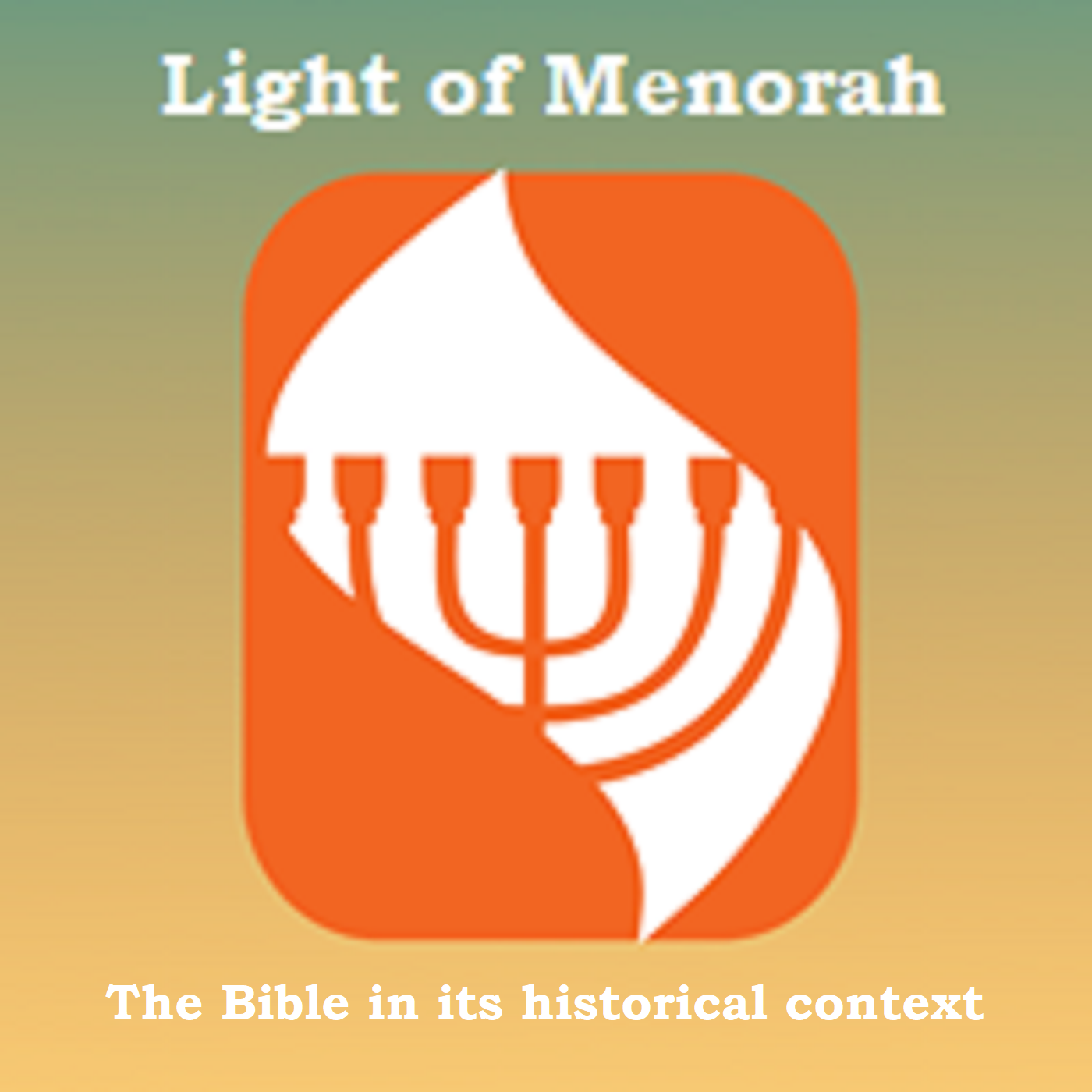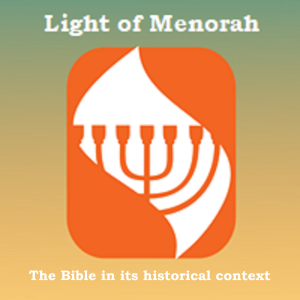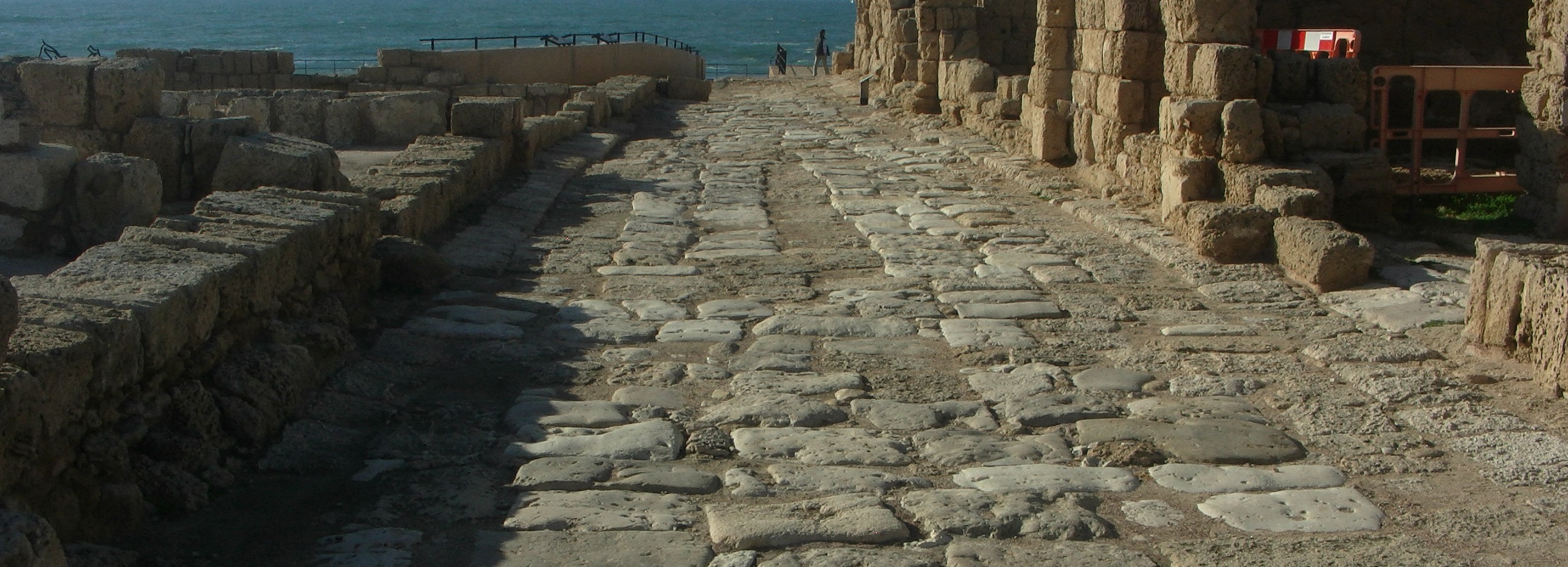
27.1K
Downloads
380
Episodes
The study of the Bible in its historical context - with a focus on the archaeology, history, geography, customs , culture, and even the languages of the ancient Middle East. WE ask what did they understand THEN - the original intent of the Lord - so that we can expand and enrich our understanding NOW and thus become true disciples of Adonai Yeshua as in John 8:31-32.
Episodes

4 days ago
4 days ago

* NO BLOOD SACRIFICE FOR INTENTIONAL SINS
As we saw in this lesson the sin sacrifice is only for UNINTENTIONAL SINS (Lev. 4:1); those sins committed mistakenly or in error or with no understanding by the one doing the act. The Hebrew word used is Shag-ah-ga שְׁגָגָה (H7684) which means a mistake or inadvertent transgression, and error, a act of sin done in ignorance, an act done with the "sinner" unawares, or a sinful act done unwittingly.
This is not our understanding of sin as Christians. To us as Christians we have been taught that all sin, every sin is an act disobeying the Lord on purpose or INTENTIONALLY. No one teaches in the church today that in the Hebrew scriptures there are two types of sin UNINTENTIONAL and INTENTIONAL. And it is so clear, so precise, so exact that יהוה Yahvay, the LORD, our God teaches in His TORAH in Leviticus that the sin sacrifice is ONLY for UNINTENTIONAL sin.
I have done a number of lessons on this and have gone more in depth. I will again come back to this again and again especially when we reach Exodus 34 and Leviticus 16. So, you may not want to wait till I get there in this podcast series. So, below are links to resources to help you dig deeper into this Torah concept of sin; that is, sin that is unintentional and intentional. You'll be able to see that Jewish theologians as far back as 100 years or so after Jesus said there was NO ritual, no sacrifice, no atonement for intentional sin. One might say the תורה Torah which brings us the NEW COVENANT at Sinai was incomplete. How is it made complete? How will it be FINISHED? Ready? Here's the links.
Link 1 - a podcast on unintentional and intentional sin as it relates to the Lord's special appointed time of YOM KIPPUREEM - https://lightofmenorah.podbean.com/e/fall-feasts-of-the-lord-yom-kippureem-episode-1-it-is-finished/
Link 2 - a short 5 minute video that gets into this topic and shows the connection of the Sinai Covenant and that Yeshua completes the covenant at the cross - https://lightofmenorah.podbean.com/e/five-small-stones-episode-9-rom-104-it-is-finished/
Link 3 - this is a chapter from one of my class books that focuses on the Lord's special day of Yom Kippureem and the issue of unintentional and intentional sin - https://www.dropbox.com/scl/fi/za1ss9s0gcmp7evzp5ops/Lsn2-Fall-Feasts-2019-31-...74.pdf?rlkey=0tt9vhgfl50joiaskt2tzjqea&st=86mkwjfd&dl=0
* ATONEMENT, FORGIVENESS, PROPITIATION, EXPIATION - Jesus and Yom Kippureem
This is an appropriate place to go into the definitions of these words. I have heard sermons on these words but never did I understand what they meant. I was never taught the subtle nuances of these critical words as they relate to our salvation the very words of the Lord.
In this lesson about the "mercy seat" and how it connects to Leviticus 16 and the Lord's special appointed time of Yom Kippureem, it seems appropriate to explain these words in some detail.
* ATONEMENT - it is an act(s) done by the guilty party, the sinner, to appease or satisfy the one you sinned against. If I have hurt someone - whether it is unintentional or intentional - and I want to regain my relationship with that person I hurt I will atone for my "sin." I will do things that hopefully will be enough for the one I hurt to accept my actions that I do to prove I am atoning and thus make things right again. But, between us and God things are different.
In the rituals of Yom Kippureem the atonement to make ourselves "right" before the LORD, the actions, are not done by the people but by Aaron the KOHEN HAGADOL כֹּהֵן גָּדוֹל - High Priest. This was only for unintentional sins since God commanded the use of a bull and a goat for the sacrifices as one can read in Leviticus 16. When we consider Jesus we find He did the atonement for us. He did the act - His sacrificial death on the cross - to do what was necessary as an act of atonement for us. As Christians we do not atone for our sins, our INTENTIONAL sins. As the Hebrew Scriptures shows there is no ritual, no sacrifice, that can be used as the act to bring us back in righteousness before the Lord. It is only the act of Jesus, His death, that is the act of atonement. Yes, we should confess our sin. Yes, we should realize our guilt and bring this to the LORD in a prayer of admittance or contrition - contrition is not just a recitation of words; it's a personal act that involves both the heart and will. It expresses a sincere desire to be forgiven and to change one's behavior. And. yes, we should know that by GRACE the LORD has given us the blood sacrifice, the crucifixion of the LAMB, as the act for our atonement.
* FORGIVENESS - this is an acceptance of the atonement of the sinner by the one sinned against and an act by the one sinned against to show that the sinner is once again in good standing. Atonement is done by the sinner. Forgiveness is done by the person who was sinned against.
Yom Kippureem the atonement is done by Aaron the KOHEN HAGADOL כֹּהֵן גָּדוֹל - High Priest. Again this is only for unintentional sins since God commanded the use of a bull and a goat for the sacrifices as one can read in Leviticus 16. And in Leviticus 4 and 16 we read the actual words of the Lord that the UNINTENTIONAL sins of Israel are cleansed, done away with, or, in other words, forgiven.
But, there is NO act or acts that one can do as our personal atonement to be forgiven for our INTENTIONAL sins against the Lord in the Torah and in the New Covenant, the Sinai Covenant, we are studying. The Sinai Covenant was "incomplete" and it is FINISHED only in Jesus and this is proven in the very words of God ...
- 1 John 1:9: "If we confess our sins, he is faithful and just to forgive us our sins and to cleanse us from all unrighteousness." [2, 3, 5, 6]
- Acts 2:38: "Repent and be baptized, every one of you, in the name of Jesus Christ for the forgiveness of your sins. And you will receive the gift of the Holy Spirit." [7]
- Ephesians 1:7: "In him we have redemption through his blood, the forgiveness of sins, in accordance with the riches of God's grace." [8]
- Colossians 1:14: "in whom we have redemption, the forgiveness of sins." [4]
- Luke 7:48: "Then Jesus said to her, “Your sins are forgiven.”" [1]
* PROPITIATION - this is the act of appeasing the one who was sinned against. In other words it is an act that the one sinned against agrees is sufficient to erase the debt of the sin and the guilt of the sinner and restore the sinner and the one who was sinned against. So, atonement is an act done by the sinner to again be restored to the one who they sinned against. But the one who atones may not d the right thing to appease the one sinned against. The one sinned against says what the price is to be paid - the propitiation is determined by the one sinned against not the one who atones. We want to be forgiven by the LORD and so we atone. But, the propitiation is beyond our doing. The only act to appease the Lord is the death of His Son, the sacrificial death of Yeshua for us. Yeshua then takes our sin upon Himself and He does the act of atonement. His atonement results in His obedience to go to the cross and die as the act, the only act, the only blood sacrifice, or the propitiation for our sin.
* EXPIATION - this definition is quite simple. It is the process which erases the guilt and the debt. One of the best explanations I have read on the difference between EXPIATION and PROPITIATION is from Ligonier Ministries. Here it is.
Let‘s think about what these words mean, then, beginning with the word expiation. The prefix ex means “out of” or “from,” so expiation has to do with removing something or taking something away. In biblical terms, it has to do with taking away guilt through the payment of a penalty or the offering of an atonement. By contrast, propitiation has to do with the object of the expiation. The prefix pro means ”for,” so propitiation brings about a change in God‘s attitude, so that He moves from being at enmity with us to being for us. Through the process of propitiation, we are restored into fellowship and favor with Him.
(https://learn.ligonier.org/articles/two-important-words-good-friday-expiation-and-propitiation)
In this podcast lesson I mentioned that the KH ROO VEEM (in English Cherubim) are a familiar concept in the 15 century B.C. Here are some pictures of various winged creatures used to guard and prevent access to that which they are protecting ...




All these images are used by permission. They are easily accessed at Wikimedia.
I had mentioned that one of my resources was Dr. Craig Keener. He is a proven trustworthy source as we study the Bible in it historical context.
- Genesis and the Garden of Eden: Keener highlights the cherubim stationed at the entrance to the Garden of Eden, tasked with guarding the Tree of Life after Adam and Eve's expulsion. He connects this to the broader theme of humanity's stewardship and the consequences of disobedience. [2]
- Ezekiel's Vision: Keener also explores the cherubim in Ezekiel's visions, where they are described as composite beings with four faces (man, lion, ox, and eagle) and multiple wings. He notes that these faces can be seen as representing different aspects of God's rule and creation. [4, 5]
- Ancient Near Eastern Context: Keener emphasizes that understanding cherubim requires considering their context within the ancient Near East. While some aspects of the cherubim are similar to imagery found in other temples, the cherubim in the Bible also have unique characteristics. [1, 2]
- Gradation of Holiness: Keener suggests that the cherubim's placement and the materials used near the ark in the tabernacle reflect a gradation of holiness, emphasizing the reverence for the divine presence. [1]
Rev. Ferret - who is this guy?

Ferret somewhere near the ancient site of Bethel in Israel.
What's his background? Why should I listen to him? Check his background at this link - https://www.dropbox.com/s/ortnret3oxcicu4/BackgrndTeacher%20mar%2025%202020.pdf?dl=0

No comments yet. Be the first to say something!